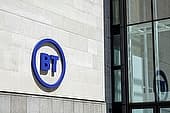Home > Broadband > News > New access rules for tower blocks for faster broadband
New access rules for tower blocks for faster broadband
Up to nine million people could benefit from the change in the rules to enforce access where landlords don't respond to requests.
The Government is creating a faster process for broadband companies to obtain access rights when a tenant has requested a connection but the landlord hasn't responded.
This means access could be gained in just a few weeks instead of the six months it currently takes to go through the courts.
Government estimates suggest 3,000 extra buildings will be connected to gigabit broadband as a result of the changes.

Access issues
When a tenant requests a new broadband connection, the provider has to liaise with the building's landlord to arrange access for installation.
The Government reports that landlords fail to respond to 40% of such requests, meaning a long and costly battle through the courts to gain access.
Under the new rules, if a landlord repeatedly refuses to respond to requests, the provider will be able to compel them by applying to the Upper Tribunal (Lands Chamber).
This should dramatically reduce the time it takes for broadband providers to force landlords to give them access, allowing tenants in those blocks to access the same gigabit broadband speeds available to individual households.
Both Virgin Media and CityFibre welcomed the changes as dismantling the barriers that mean the target of making full fibre accessible to all by 2025 is more attainable.
The Government's deadline for full fibre connectivity was initially 2033, but Prime Minister Boris Johnson hopes to speed the process up.
Who will benefit from the changes?
Headline Government figures say that nine million people could benefit from the improved access rules, with the estimate that 3,000 buildings could be connected each year.
There are approximately 480,000 blocks of flats and apartments in the UK, although it's unclear how many have already been connected to gigabit broadband services.
However, it's worth remembering that gigabit broadband isn't nearly as widespread as superfast and ultrafast broadband, so tenants may have to wait some time to benefit.
According to recent Ofcom figures, 8% of properties across the UK have access to full fibre broadband, with 400,000 connections added in the first four months of 2019.
Find out which are the fastest broadband providers in your area in our guide.
Broadband speed race
Gigabit broadband services have been back in the news recently with the launch of Gig1 by Virgin Media, a 1GB broadband service that aims to cover 15 million households by the end of 2021.
It was also announced earlier this week that Kcom, the incumbent broadband provider in Hull, has rolled out full fibre to all 200,000 homes in the city. This makes it the first city to achieve such a comprehensive roll out.
For most of us, however, the best we can hope for is ultrafast broadband which offers speeds of up to 300Mb.
53% of properties had access to ultrafast broadband when Ofcom released data in May, although this has now risen to 54% in the most recent figures.
The number of households able to access superfast broadband services (speeds up to 30Mb) is remaining stable at around 95%.
At the other end of the spectrum, however, there are still 2% of properties unable to access speeds of 10Mb or more, making them eligible for the Universal Service Obligation from March 2020.
Find out which broadband providers serve your area and compare cheap broadband deals using our free comparison tool.
Receive consumer updates that matter in our newsletter

We're independent of the products and services we compare.

We order our comparison tables by price or features - never by referral revenue.

We donate at least 5% of net profits to charity, and operate a climate-positive workforce.
Latest News

19 January 2026
Three named fastest UK mobile network for 2025
18 January 2026
BT and EE to end CPI-linked rises for out-of-contract customersReceive consumer updates that matter in our newsletter



